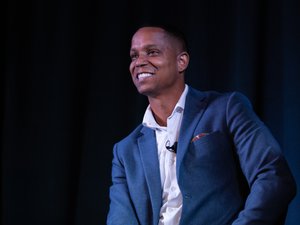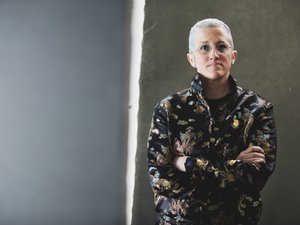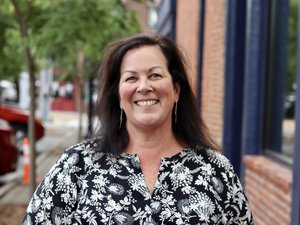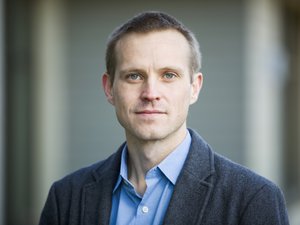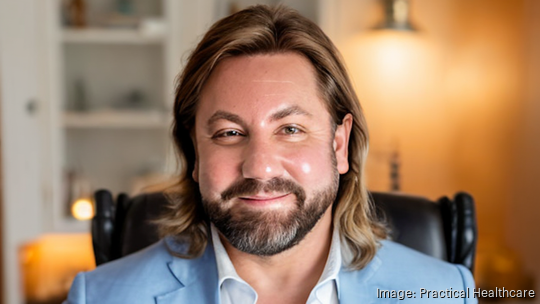
Some pain points can be subtle when it comes to a founder deciding to create a startup business. Some not so much — like a linear progression of medical patients.
From 2020 to 2022, Dr. Ryan Nazar worked as an independent medical examiner in Louisville. In that role, he served as the end of the line, so to speak, when it came to patients getting more treatment for a certain malady, through the perspective of insurance companies. In the world of health care, it’s known as maximum medical improvement, or MMI for short.
“Here’s a group of patients who are told legally, there is no more care the system can offer you,” he said. “That’s a legal binding document insurance will no longer pay for their care. And the problem there was that you had a lot of patients who still felt they could get better, who were upset, who were disenfranchised at not having this access to this care that they had become used to.”
Given the legal restrictions, Nazar — who specializes in disability medicine — could not act as a treating doctor, but he could connect patients who were facing similar challenges.
Before too long, his programming set the foundation of Practical Healthcare, a social media platform that pairs patients who are facing similar health problems/unmet needs and share similar values in the interest of finding crowdsourced solutions by empowering the “non-medical parts of the system.”
Matches on the platform are made by a combination of an artificial intelligence (AI)-powered algorithm, as well as the results of patients taking a quiz and filling out a profile, leading to them being categorized into one of four groups: avoiders, talkers, planners and advocates. The end goal is to have everyone be acting as advocates.
“We connect [patients] based on what they can’t do in life as the problem, not the medical diagnosis,” said Nazar, who serves as the CEO and co-founder of the startup.
Making connections
To help the decision making, Nazar began teaching Lean Six Sigma methods, which essentially focus on creating statistic-based, streamlined processes while adding value and eliminating anything that could be considered “waste.”
“We taught them some really basic concepts about how to identify what’s valuable, what’s value-added in your life, what works within your life, and then make health care decisions based upon that bigger need,” he said.
As of a recent date, more than 500 patients have gone through the program that is now the foundation for Practical Healthcare. Nazar said 44% of patients have experienced an improvement in their impairment caused by injury or illness.
Nazar mentioned an example of working with three truck drivers who both had suffered rollover accidents — and ultimately serious wrist injuries — in their trucks’ cabins and, as a result, could not drive commercially.
They had consulted with orthopedic surgeons and undergone several sessions of physical therapy, until they were told they were “strong enough.” Although they were not able to grip a traditional steering wheel, as a result of being connected through Nazar they installed steering wheel knobs into their truck cabins, retook their driving tests and were back on the road after two weeks of being introduced to one another.
“I didn’t do anything besides connect them," Nazar said.
Nazar referenced a recent report by the U.S. Department of Human & Health Services that stated that 47% of health outcomes are due to socioeconomic factors, such as family environment and being able to take time off to get adequate treatment.
“As doctors, we assume what we know in the clinic, what we know in this 15-minute office visit, but it’s up to the patient to then take those medical treatments and fit them in with their lives,” he said. [Patients] don’t know how to do that. We’ve never empowered patients to take that ownership.”
After the waiting list to work with patients through his IME position became too long, Nazar decided to recently run a paid pilot program at two of his alma maters: Louisville Collegiate School and Eckerd College in St. Petersburg, Florida. While working to solve one collective issue in each pilot, program members had increased mental health and sleep and decreased stress, he said, while also showing it could work in group sessions as well as through one-on-one consulting.
The burnout situation
Nazar founded the company with Mark Cooksey, who also serves as a durable medical engineer (DME) at Norton Healthcare. The two met at Norton when Nazar was helping to run the hospital’s Covid command center as its director of clinical effectiveness from 2018 to 2021.
Toward the end of his time in that role, Nazar’s main mission was to reduce the amount of burnout among physicians and nurses at no additional costs. Cooksey, who serves as Practical Healthcare's COO, and Nazar both happen to have Lean Six Sigma Black Belt certifications.
“I leaned on Mark pretty heavily to use Lean methodology to implement a solution based upon the voices of our patients, our nurses and doctors — and it worked for them,” Dr. Nazar said.
One of the keys to reducing burnout at Norton, Dr. Nazar said, was capturing “value-based storytelling” in which health care professionals shared with their individual community what they valued, connected their struggles to their value system and, in turn, created newfound awareness.
Practical Healthcare will operate under two types of revenue models. The first is the business-to-customer (B2C) freemium model that would be akin to LinkedIn in which its value rises when more people use the platform. Premium services could be offered as early as 2026 with a monthly subscription, Nazar said.
Additionally, there is a business-to-business (B2B) revenue model that is built on targeted advertising. Nazar said the company already has verbal agreements with vendors representing such fields as medical devices, digital health platforms and pharmaceutical companies.
The startup is raising $1 million in a pre-seed round as it gears up to produce its Software-as-a-Service (SaaS) minimal viable product (MVP) in 2024 with its first patient cohort. Thus far, it has raised $130,000 in a friends-and-family round, but it's seeking angel investors or early-stage venture capital firms.
Practical Healthcare recently completed the LaunchIt program at the University of Louisville. Earlier this month, it was named as one of six startups to take part in LaunchBlue’s UAccel Quick Start and I-Corps summer cohort, which concludes on Aug. 18.
